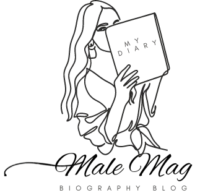Key Takeaways
- Effective treatment and patient safety rely on the proper management of medications.
- Common challenges include polypharmacy, non-adherence, and communication gaps.
- Effective strategies include regular reviews, pill organizers, and reminder systems.
- Technology such as EHRs and mobile apps significantly aid in medication management.
- Patient education and involvement are crucial for successful medication adherence.
Table of Contents
- The Importance of Medication Management
- Common Challenges in Medication Management
- Effective Strategies for Medication Management
- The Role of Technology in Medication Management
- Patient Involvement and Education
The Importance of Medication Management
Proper oversight of medications is crucial for seniors, as many rely on multiple prescriptions to manage chronic conditions. Incorrect dosages, missed medications, or dangerous drug interactions can lead to serious health complications. Effective medication management ensures seniors take the proper medications at the correct times, helping control symptoms, prevent hospitalizations and maintain a better quality of life. This oversight is often challenging for older adults to manage independently, making professional assistance essential. In communities like assisted living Louisville KY, trained staff provide the necessary support to ensure residents’ medication routines are carefully monitored. By utilizing this service, seniors and their families can rest assured that the health dangers linked to incorrect medication usage are reduced, resulting in peace of mind. This degree of attention encourages both security and autonomy.
Common Challenges in Medication Management
Managing medications can be complicated due to challenges such as polypharmacy, which can cause adverse drug interactions and side effects. Additionally, non-adherence to prescribed regimens due to forgetfulness or misunderstanding can be problematic. Communication gaps between healthcare providers and patients can lead to errors and disrupt care continuity. Regular medication reviews, patient education, and strong communication channels are essential to address these issues. Encouraging active participation in treatment plans can also help minimize non-adherence issues, as patients who understand their medications are more likely to follow their regimens accurately.
Effective Strategies for Medication Management
A few effective medication management strategies include conducting regular medication reviews, using pill organizers and employing reminder systems. These strategies aim to promote safe and effective medication use, consequently lowering the chances of errors and enhancing patient outcomes. Notably, healthcare professionals should focus on building a comprehensive medication list to avoid drug interactions and duplications. Regular medication reviews help identify any changes needed in a patient’s medication regimen, ensuring that all prescribed drugs are necessary and practical.
Regular Medication Reviews
Regularly reviewing medication can help find problems like repeated medication, drug interactions, and unnecessary prescriptions. This practice allows healthcare providers to adjust treatment plans, ensuring optimal patient outcomes. Regular reviews are especially important for patients with complex or changing health conditions, as they help keep the medication regimen up-to-date and appropriate for their current needs.
Pill Organizers and Reminder Systems
Pill organizers and reminder systems are valuable instruments that help you stick to your medication schedule. They assist patients in managing their medications, ensuring they consume the right amounts at the correct times. These tools are especially helpful for elderly patients or those with complex medication regimens. For instance, electronic pill dispensers can provide audible or visual reminders, and smartphone apps can send notifications to prompt medication intake, streamlining the process and ensuring consistency.
The Role of Technology in Medication Management
The advancement of technology has dramatically improved medication management systems. Electronic health records (EHRs) ensure accurate tracking, while mobile apps remind patients to take their medications. Automated medication dispensing systems in healthcare facilities reduce errors by ensuring the precise dosage is administered to the right patient at the right time. Research discovered that using electronic health records (EHRs) and similar technologies can lead to a decrease in medication errors of about 46%. These technologies make the medication management process more efficient, allowing healthcare providers to offer safe and effective care, automate daily tasks, and give instant access to patient data.
Patient Involvement and Education
Patient participation is essential for successful medication administration. Teaching patients about their medication, possible side effects, and adherence encourages them to become more involved in their healthcare. This education improves medication adherence and overall health outcomes. Patients who understand their treatment plan are more likely to stick to their medication regimens, reducing the risk of adverse drug events. Healthcare providers should involve patients in their treatment plans to build trust and collaboration, improving health outcomes and patient satisfaction.
For more important news please visit my website: Male Mag

